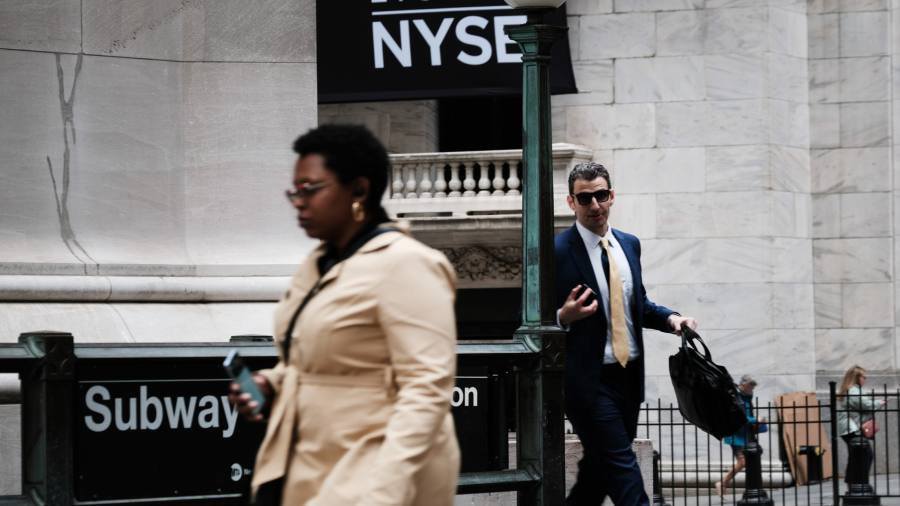Hedge funds and asset managers have raised bets against U.S. stocks to their highest since 2011 amid fears of a possible U.S. debt default and recession.
According to Societe Generale’s analysis of the Commodity Futures Trading Commission’s portfolio of futures positions, net short positions (bets on falling prices) held in derivatives contracts linked to the S&P 500 have risen sharply in recent weeks.
Investors have been racing to protect their portfolios as the U.S. approaches debt default, with President Joe Biden warning congressional Republicans that failure to reach a deal to raise the government’s $31.4 trillion borrowing limit would be a “disaster” for the economy.
Despite debt concerns and the failure of several regional U.S. banks in the spring, the S&P is up 8% this year, hitting an eight-month high earlier this week and raising hopes that a new bull market on Wall Street has begun.
JPMorgan strategist Marko Kolanovic said the market’s rally “appears to be misplaced because investors never factored in the significant risk of failing to raise the debt ceiling in the first place”.
Societe Generale described the high level of short positions as a warning sign “too strong to ignore”.
U.S. politicians hope to reach an agreement on the debt ceiling within the next few days, ahead of June 1, when the U.S. may run out of cash to pay all its debts.
Many managers are also concerned about the valuation of U.S. stocks and the possibility that the Federal Reserve’s rapid rate hikes over the past year to fight inflation could trigger a recession.
The S&P 500 is currently trading at a forward P/E ratio of 18.7, near the top of its historical valuation range.
“The stock looks expensive to us. The price-to-earnings ratio is near historic highs,” said Kenneth Tropin, chairman of Connecticut-based Graham Capital Management, which manages $17.7 billion in assets. Traders at his firm had held small short positions for most of the year, though those positions have been pared back as stocks rose, he said.
“We expect higher volatility in the months ahead given the rally driven by only a handful of companies, relatively expensive valuations for technology companies and large-cap growth stocks, and the negative impact of tight credit on corporate earnings,” said S&P The 500 was at about 3,800 people through December,” said Mark Haefele, chief investment officer at UBS Global Wealth Management. The index was around 4,175 on Friday.
Reflecting their caution, many hedge funds have been buying individual stocks with strong cash flows while shorting the broader market, said Mario Unali, a portfolio manager at investment firm Kairos.
“Conviction for a broad-based risk rebound remains subdued due to the uncertain economic environment,” he added.
Some market participants believe that problems in the stock market may start to emerge later this year, especially if interest rates continue to be higher than market expectations.
Michael Wilson, chief U.S. equity strategist at Morgan Stanley, said an earnings recession is looming in the second half of the year as consumer spending starts to slow and problems affecting regional banks will accelerate a tightening of U.S. corporate credit.
“The major (U.S. equity) indices are priced for good outcomes on multiple fronts at the same time, and we think the risks have risen, and in some cases will increase,” Wilson said.
“My best guess is that if the Fed disappoints those who believe they will cut rates three times before the end of the year, we could see a sharp stock market correction in the second half of the year,” said Graham’s Tropin.


